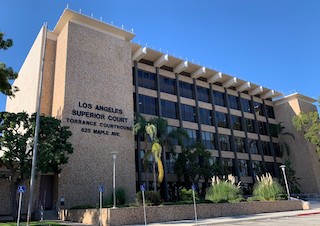Most of us can understand that in order to request “expungement,” one must first successfully complete probation. Penal Code § 1203.4(a)(1).
Most of us can also appreciate that to request sealing of a police report based on passage of the statute of limitations with no filing of a criminal case, one is disqualified if her or she “intentionally evaded law enforcement efforts to prosecute the arrest, including by absconding from the jurisdiction in which the arrest occurred.” Penal Code § 851.91(a)(2)(C).
These threshold requirements are based upon the inherent power of the courts to enforce their judgments, and has long been applied to those who evade the law while simultaneously seeking its protection.
Brief Synopsis: The Fugitive Disentitlement Doctrine is perhaps best explained by a maxim of legal jurisprudence that “[n]o one can take advantage of his own wrong” (California Civil Code § 3517), as the following article explains.
In a different context, the same principal has been applied to bar the famous actor and fugitive Roman Polanski from appealing his unlawful sex with a minor conviction while having fled the jurisdiction of the court to France once he understood the judge intended to impose a prison sentence. The court then issued an arrest warrant for Polanski when he refused to appear in court for sentencing.
Some courts have distilled down this approach by Polanski, analogizing it to a coin toss where “Heads I win; tails you’ll never find me!” It is unfair, in other words, to request a judge’s power to rule a certain way, but only respect it the outcome is favorable.
The U.S. Supreme Court first established the fugitive disentitlement doctrine in Smith v. United States (1876) 94 U.S. 97. In Smith, the Court removed from its docket a criminal defendant's appeal of conviction because the defendant fled the Court's jurisdiction prior to resolution and thus was not under the control of the Court. Id. at 97-97. The Court expressed concern that the proceedings would have no effect on the fugitive, that any judgment adverse to the fugitive would be unenforceable.
 Torrance Courthouse
Torrance Courthouse
Without power over the fugitive, any action the Court took would be useless: if the Court affirmed the criminal conviction, the defendant was unlikely to turn himself in; if it reversed and ordered a new trial, the defendant still might decide not to return. Id. 97.
The Court stated that "it is clearly within [the Court's] discretion to refuse to hear a criminal case in error, unless the convicted party, suing out the writ, is where he can be made to respond to any judgment we may render. Id. at 98. See also Bonahan v. Nebraska (1887) 125 U.S. 692 (upholding dismissal of appeal of defendant who had escaped from custody).
This bar to “gaming” of our legal system is called the Fugitive Disentitlement Doctrine. “[C]ourts have consistently held that application of the doctrine is appropriate where the appellant has willfully made himself or herself unavailable to obey a court’s mandate in the event of affirmance. ‘[I]t is the flight or refusal to return in the face of judicial action that is the critical predicate to fugitive disentitlement.’” Allain v. Allain (2d Dist., 2014) 123 A.D.3d 138 at 146; see also In re Tradale CC (3d Dep’t 2008) 52 A.D.3d 900.
Put another way, “An appellant’s escape ‘disentitles him to call upon the resources of the Court for determination of his claims.’” Empire Blue Cross and Blue Shield v. Finkelstein (2d Cir., 1997) 111 F.3d 278, 280, citing Degen v. United States (1996) 517 U.S. 820.
This doctrine has been applied most commonly in the family law context wherein, for example, a parent challenges a support payment order but has not paid anything under the order he or she seeks to reverse. The doctrine has been extended to the criminal context when, for example (as our office experienced!) a petitioner seeks to vacate a conviction while he or she failed to complete the terms of probation and a bench warrant was pending. In such a case, while our client had not fled to France like Polanski, he similarly had disobeyed the court ordered terms of his probation and was thereby considered a fugitive.
Indeed, a judge may dismiss such an appeal or motion outright based on defendant’s conduct. In Molinaro v. New Jersey (1970) 396 U.S. 365, the convicted appellant failed to surrender himself to state authorities as requested while his case was pending before the court. The court dismissed that appeal, asserting that, while flight does not strip a case “of its character as an adjudicable case or controversy,” it “disentitles” the fugitive from calling upon the resources of the court to settle his claims. Id. at 366.
For more information about other topics wherein the FDD is recognized, please click on the following articles:
 Torrance Courthouse
Torrance Courthouse